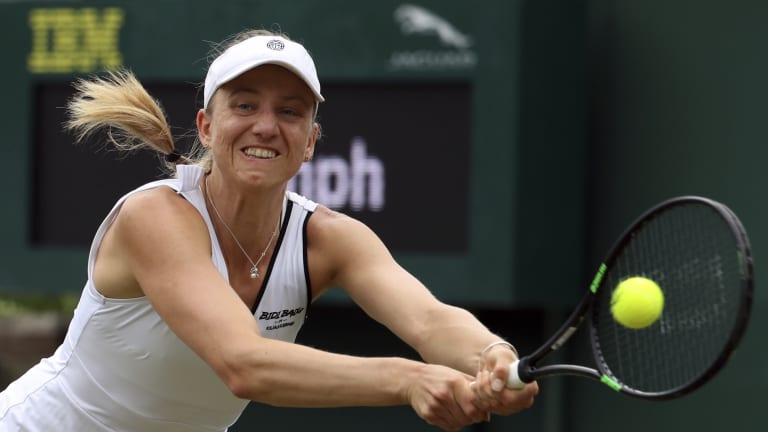LONDON—The many coaches, family members and friends seated in Mona Barthel’s player box spoke German almost exclusively during the 26-year-old’s first-round match on Court 18 at the All England Club, but for two notable instances.
The first: “Super!” Considering Barthel is one the most skilled unseeded players in the draw, that exclamation was heard few and far between on Tuesday. A former member of the Top 25, Barthel has put together a solid if unspectacular career that includes four WTA titles and three runner-up finishes. But after nearly dropping outside the Top 200 late last year, the nearly 27-year-old has had to play nearly as many qualifying matches in 2017 (19) as she has main-draw contests (26).
Nonetheless, a return to form—punctuated by an eight-match title run in Prague (three wins in qualifying wins, five in the main draw)—brought Barthel into the heart of the Grand Slam season with added confidence, something her first-round opponent, CoCo Vandeweghe, has been searching for.
Vandeweghe, the big-serving, hard-hitting, unfiltered and polarizing American, took the first giant step forward in her career at Wimbledon three years ago, when she reached the quarterfinals. Her second step forward step took place six months ago, when she reached her first Grand Slam semifinal at the Australian Open. Those highlights showcased Vandeweghe’s athletic gifts, as well as her gift of gab. She blasted Maria Sharapova, her Wimbledon quarterfinal vanquisher, in the press for unsporting behavior; the Russian was accused of moving during Vandeweghe's service motions. In Melbourne, Vandeweghe made headlines—along with the cover of TENNIS Magazine’s Wimbledon preview issue—for her on-court remarks after routing world No. 1 Angelique Kerber: “Well I guess I faked it a lot because I was feeling like crap out there,” said Vandeweghe after a 6-2, 6-3 over the two-time Grand Slam champion, “but, you know, ‘fake it till you make it.’”
